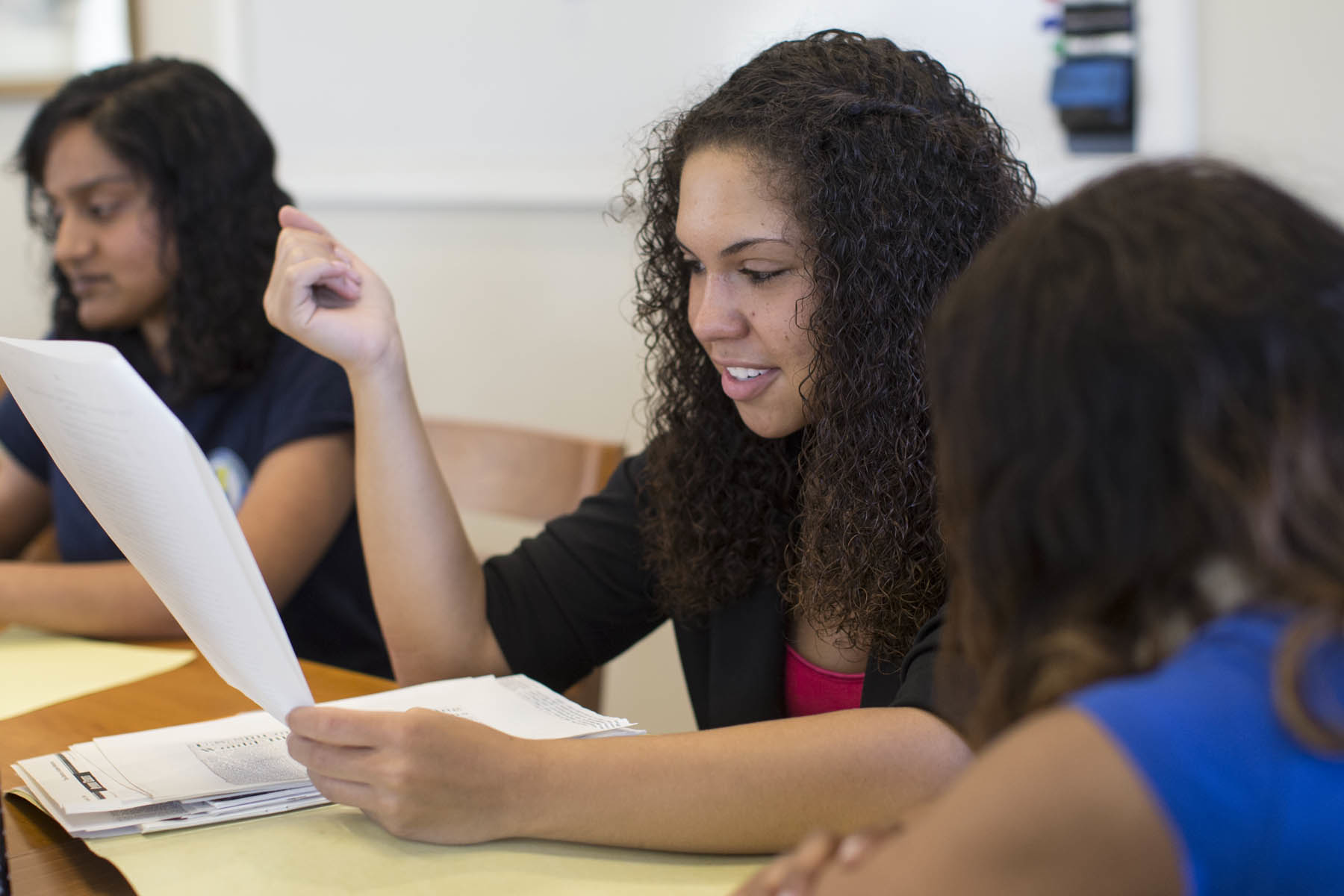The University of Virginia has long had reason to boast about the success of its African-American students, who have achieved the highest graduation rates among public universities in the country for the last two decades.
But nationally, the graduation rates of black college students are not aligned with correspondingly high grade-point averages, which is why recent efforts by U.Va.’s Office of African-American Affairs are focused on ensuring that these students not only make it to graduation, and beyond, but thrive during their time at the University, from first year to fourth.
OAAA began revamping its programming in 2006 to focus on academic achievement before graduation; since then, black students at U.Va. are making significantly better grades. Two U.Va. case studies released in the July edition of Vanderbilt University’s Peabody Journal of Education showed that the percentage of black students with at least a 3.0 grade-point average at U.Va. rose from 37.4 percent in 2009 to 51.9 percent in 2014. In addition, 30.2 percent of students who identified as “black” in the class of 2012 graduated with high honors (above a 3.4 GPA), far above the 17.3 percent rate five years earlier.
At the opposite end of the spectrum, the GPAs of first-year students, who tend to struggle the most academically when starting college, rose nearly a half-point from the class of 2009 to the class of 2014.
These jumps in academic success are a result of a group-wide effort within the OAAA community, from the deans to the students, administrators said.
“We recognized that it was not sufficient to graduate from a college or university, but it was important that they graduate well,” said Patrice Preston Grimes, associate dean of OAAA and a professor in the Curry School of Education, who worked closely with other deans in the office to strategize over the programming design. “‘Well’ in that they had solid GPAs, competencies and skills to be competitive in the workplace, in graduate schools or in public service.”
OAAA’s “cluster-mentoring model,” as described by Maurice Apprey, dean of African-American Affairs and the journal’s guest editor, seeks to support the black community academically, socially and culturally, to provide a safe environment that facilitates and motivates student learning.
The programming starts with peer advising, which matches incoming African-American students with mentors to advise them through the transition into University life.
Ayodeji Bode-Oke, now a fourth-year aerospace engineering major, arrived at U.Va. from Abuja, Nigeria with two suitcases and no cell phone, Internet or way of getting oriented to the University. A surprise run-in with his assigned peer adviser – also an engineering student from Nigeria – helped him get the technology he needed and became a friend who helped him feel much closer to home. Now in his final year, Bode-Oke has served as a peer adviser for five black students, including another Nigerian student.
“I wanted to be a peer adviser because I thought it was very important for me to give back, because I don’t just believe in individual success,” he said. “Individual success is good, but just like in the game of soccer, or any game, individual honors matter, but not as much as team honors. If I can be successful, then most black students should be – in fact, they have no reason not to be.”
Along with peer advising, Bode-Oke now heads “Raising the Bar,” a weekly small-group tutoring and seminar program that offers course-specific help from peers and colloquia on money management, studying abroad or exploring undergraduate research opportunities.
The program is a part of OAAA’s flourishing “GradSTAR” program that Grimes directs. GradSTAR is a three-pronged initiative that encompasses peer tutoring through Raising the Bar; post-graduate preparation; and faculty-student mentoring, in which students meet one-on-one with faculty members. Advising is an essential part of the mission of OAAA, where deans make themselves readily available to students.
Troi Graves, a second-year, pre-medical student and Echols Scholar, received input from both peer and faculty advisers when she arrived as a first-year student. “I was taking all the wrong classes – chemistry, calculus and statistics, all during my first semester,” she said, explaining that taking on these intensive introductory classes all at once would have destroyed her GPA.
“I came [to OAAA] and went to have a meeting with one of the deans, and we completely changed my schedule,” she said. “They try to make a maze around your classes, so that instead of just going straight through the worst classes, there’s a way to maneuver around and protect your GPA. That was really helpful.”
Other initiatives that have developed out of the OAAA office include cultural programs supported by the Luther Porter Jackson Black Cultural Center, which fosters cultural, educational and social activities within the University’s black community, and the Parents Advisory Association, which reaches out to families to help support their students at the University and at home.
All these programming initiatives work toward supporting, motivating and positioning African-Americans students for success during their time at the University. The OAAA deans expect the upward trend in GPAs to continue.
“One of the things I respect about OAAA internally is that we are very fluid and we collaborate,” Grimes said. “Everyone in this office touches everything. I feel very fortunate to work with a team of people who all have the same goal, and that is that we want students to be the best they can be and graduate from U.Va. well. And that’s what we all work toward.”
Media Contact
Article Information
September 2, 2014
/content/graduation-floor-not-ceiling-african-american-students-uva

